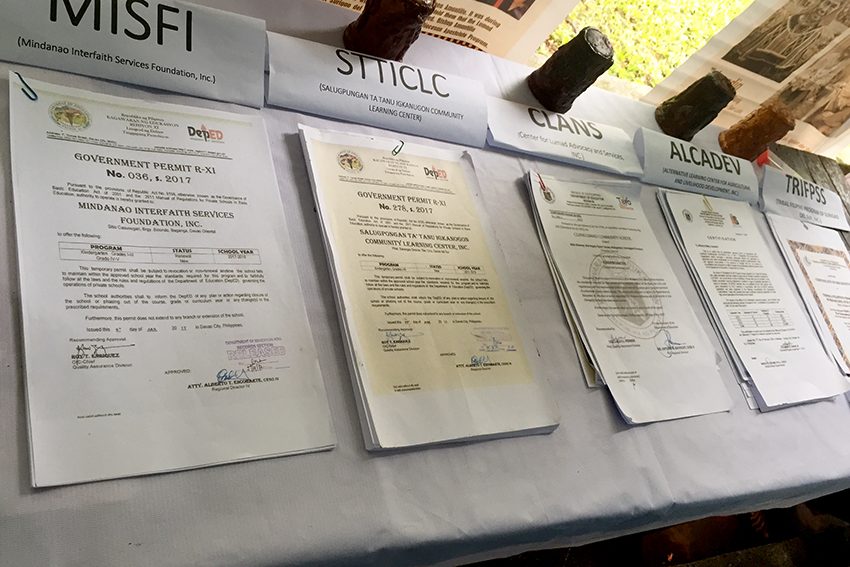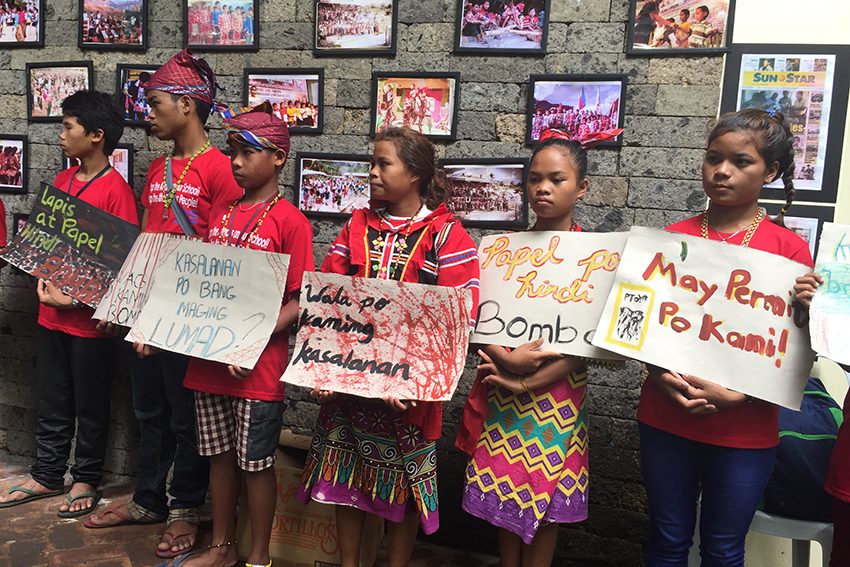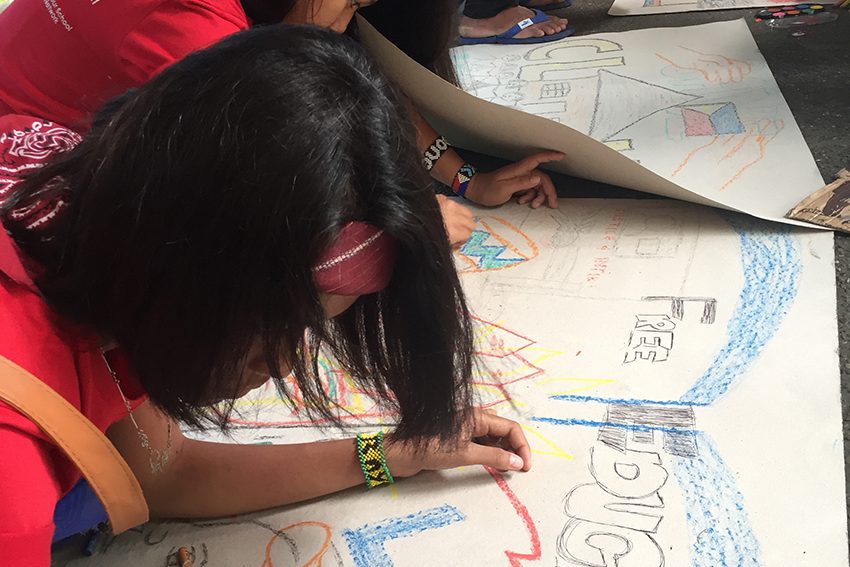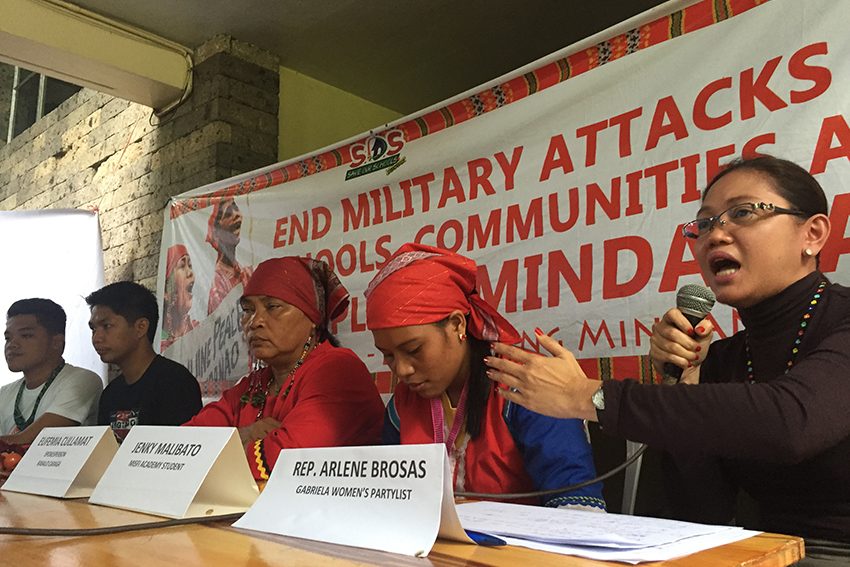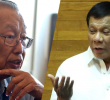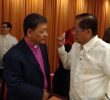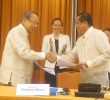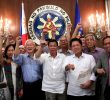QUEZON CITY, Philippines — Lumad leaders and children from Mindanao, along with progressive groups, called on today for the continuation of peace talks between the government and communist revolutionaries, saying it is the only solution to their issues.
“Even in a small community, when there is a problem, it should be discussed to resolve them,” said Eufemia Cullamat, a Manobo and tribal leader, at a press conference in the International Center of the University of the Philippines in Diliman.
Indigenous groups, along with 222 children, came to Metro Manila, to formalize their complaints against military officials for human rights violations, including bombing
Lumad schools and posing threats to the students, their parents and volunteer teachers. They have been calling for the President to lift the Martial Law in Mindanao, waiting for him to speak with them personally.
Duterte, during his second State of the Nation Address on July 24, said he will not talk with the revolutionaries anymore, despite advances in the peace process on
the agenda on Comprehensive Agreement on Social and Economic Reforms between the Government of the Republic of the Philippines (GRP) and the National Democratic Front of the Philippines (NDFP).
The peace panel had discussed the provision on the Agrarian Reform and Urban Development last July 15-17. It includes the guidelines of free land distributions to farmers.
The land is also what we are fighting for, Cullamat said, noting that they base their livelihood on agriculture. “Our country will prosper if we don’t destroy our environment,” she added.
The peace talks will resolve the root causes of armed conflict, said Rius Valle, spokesperson of Save Our Schools Mindanao. “Land reforms and national industrialization are the answers to the worsening poverty not only of the Lumads, but of the Filipinos,” he said.
After his SONA, Duterte showed up to thousands of protesters outside the House of Representatives and told them he will resume the peace talks.
Asked whether or not the groups believe him, Benjie Valbuena, national chairperson of the Alliance of Concerned Teachers, said “Let’s rather wait for the next episode,” calling the President a veteran trapo (traditional politician).
Soldiers camp in our schools, we fear encounter
Lumad children accused military men camping at their schools, even inside their houses.
“The AFP (Armed Forces of the Philippines) violated the laws in our school,” said Jenky Malibato, one of the lumad children camping at UP. She said the NPA (New People’s Army) members stay away from their communities unlike the soldiers. “We are scared that when there will be an encounter, our classes will be affected.”
Serving more than 2,000 indigenous students in Mindanao hinterlands, the Salugpongan Ta’ Tanu Igkanogon Community Learning Center, Inc. filed a complaint on July 20 against AFP officers for several human rights violations, including threats, harassments, intimidation, destruction of school property, and school encampment. The center cited the encampment of 20 soldiers in a Lumad school in Talaingod, Davao del Norte on June 7.
Amid threats from soldiers and even the President’s accusation that the Lumad schools are teaching subversion, volunteer teachers are not intimidated and vow to continue giving education.
“The lumads just want to learn how to read, write and count,” said Arjay Perez, a volunteer teacher and secretary general of the Association of Community Educators. Coming from outstanding universities in the cities, the teachers walk long kilometers to reach the remote schools, he said.
“The President should appreciate the efforts and the initiatives of the Lumads to educate themselves,” said Gabriela Women’s Partylist Representative Arlene Brosas at the press conference. She cited that one out of 10 Filipinos of ages from 6 to 24 is out-of-school. The highest number of them are from the Autonomous Region of Muslim Mindanao and Region 12 located in the south-central of Mindanao.
The Duterte administration should continue the peace talks, instead of solving issues through militaristic way, such as martial law and further militarization in lumad areas, Brosas added. #

